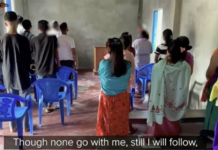
Houston, TX (ANS) – Prayer leaders and mobilizers are saying that there are more people praying for revival and spiritual awakening now than ever before. The Prayer Movement, over the past four decades, has gained momentum with a focus on World Evangelization. Researchers tell us that more people are coming to the Lord every day around the world than at any other time in history. Strategic level intercessory prayer is taking on new meaning in relation to the prospects of completing the Great Commission.
That being said, here are a few important questions to consider:
- What kind of prayer does God answer?
- How are so many people coming to the Lord?
- Why are so many institutional/traditional churches in the West declining?
- What will it take to reactivate the Body of Christ in the Global North?
- What can we learn from the rapidly reproducing disciple making/church planting movements in the Global South?
- Why is it that the majority of professing Christians seldom, if ever, share the Gospel or lead others to Jesus?
- What are some important lessons we can learn and apply from the Early Church and the New Testament?
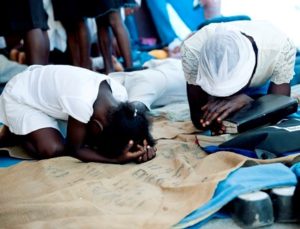
These are great questions that can lead to new or different ways of thinking about and conducting church and doing ministry. Awareness is the first step to change, and sometimes, just asking the right questions can have significant impact.
Divine Appointments
On a personal level, each of us can increase our effectiveness and influence by more disciplined and specific prayer. I’ve noticed that when I pray for opportunities to share the Lord, He is always faithful to answer those prayers. In many cases He answers in the most unexpected ways. We often call those encounters “divine appointments.”
Prayer Evangelism
Years ago many of us were introduced to the concept of “Prayer Evangelism.” That can take on many forms of expression. For example, praying for leaders, laborers and the lost is a good place to start. Prayer journeys, prayer marches and prayer walking (neighborhoods, malls or other public places) are all activities everyone can participate in. Simply asking people how you can pray for them is a simple start to engaging in Jesus conversations. It can happen almost anywhere we connect with people and often leads to discussions about spiritual matters.
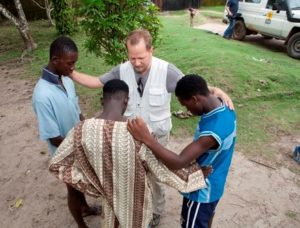
Prayer-Care-Share
Corporate prayer, prayer meetings and prayer rallies are valuable. For several years in the Houston area, many of us have engaged in prayer summits, pastors/church leaders prayer gatherings, prayer congresses, all-night prayer events. Some have done prayer drives around the city.
Asking questions and watching for ways to show acts of kindness works everywhere. Simply asking something like, “Do you have anyone praying for you?” is a great conversation starter. Every follower of Jesus can cultivate a “Prayer-Care-Share Lifestyle.” In relation to the “Share” part is where some training in the concepts of Orality (Bible Storying and other aspects) can provide some skills and methods that are effective anywhere, with almost anyone.
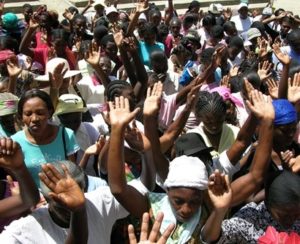
Fruitful Communication
Over the years, we’ve discovered the effectiveness of Orality Training. It can level the playing ground and enable men, women and children everywhere to be more fruitful in communicating the Gospel, making disciples and even church planting. People have more boldness and confidence in telling their story, and God’s story and building relationships.
Priesthood of all Believers
When followers of Jesus understand and embrace the priesthood of all believers, there’s a recognition that we all have a role in the Great Commission. It’s a joy to see how people light up with passion and excitement when they have an awareness of the indwelling Christ and the presence of the Holy Spirit. The applications are relevant to those who worship under trees in West Africa, to urban centers in Asia and Latin America, as well as on university campuses and in corporate boardrooms in North America or Europe.
Power of The Word – Spoken and Written
There is an important lesson we learn from the Story of Jesus Calming the Storm, from Mark chapter 4. Jesus rebuked the wind and spoke to the waves. He said, “Quiet, be still” and there was a perfect calm. We often ask:
- Can Jesus still bring calmness during our storms of life?
- Does His Word still have power today to change lives and change things?
- Do our words have power?
- Is the Holy Spirit still at work in the world today?
- What are the various forms of expressions of His Word?
- Which methods are more effective in communicating biblical truth (spoken or written)?
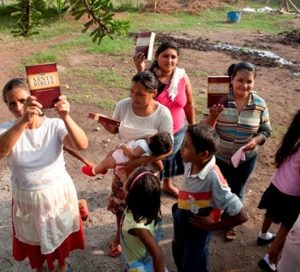
These are the kinds of questions that generate fruitful discussions. Context and culture are factors to consider. For example, we get very different responses from remote villages in the bush, churches in North America, or classrooms of seminaries and universities in the West. From our experience in Living Water International, we recognize that there is much we in the West can learn about prayer and the ministry of the Word from our sisters and brothers in the rest of the world.
Making a Difference
When we think of all the needs in the world (both physically and spiritually), we may be tempted to think, “What difference can I make? Or, what part can I have in fulfilling the Great Commission?” That’s a great question every follower of Jesus should be asking. The encouraging news is that God has used ordinary individuals to make major impact on the world. There are many examples in Scripture and throughout history. Sometimes it’s the small and simple things we say or do that God uses to impact the people around us. Praying, telling stories (especially God’s Story), making friends and encouraging others to do the same, might be all it takes to start a movement.
For more information on Orality resources, training opportunities, and other events, visit – www.orality.net or www.water.cc/orality.



